#for maglor took pity upon elros and elrond and he cherished them and love grew after between them as little might be thought
Photo
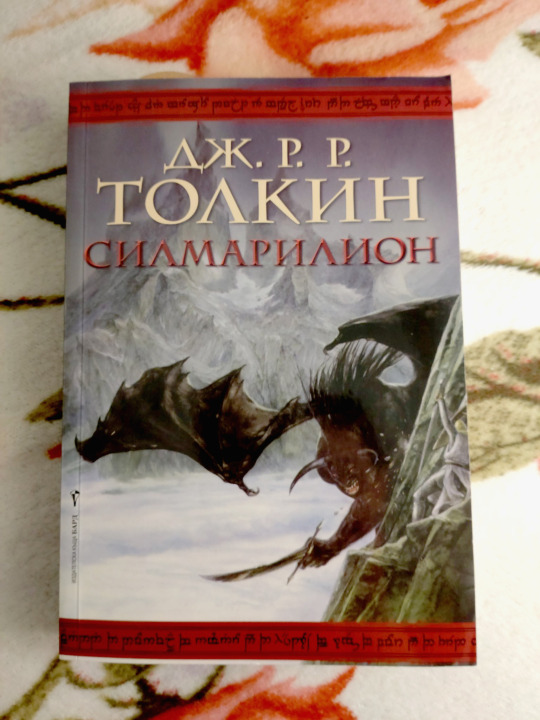

It melts my heart that in the Bulgarian version of “The Silmarillion” the sentence
“For Maglor took pity upon Elros and Elrond, and he cherished them, and love grew after between them, as little might be thought;”
is translated as follows:
“Маглор съжалил Елронд и Елрос и бащински се погрижил за тях, а след време помежду им се зародила неподозирано силна обич;“
The direct translation of the sentence from the Bulgarian version to English would be:
“Maglor took pity upon Elrond and Elros and took care of them as a father would/took care of them in a fatherly way, and after awhile an unexpectedly strong love grew between them;”
It is just so heartwarming to know that the guy who translated The Silmarillion to Bulgarian thought that the best way to convey what Tolkien meant was by including the word father/fatherly (баща [bashta]/бащински [bashtinski]).
He probably read that one sentence and thought “Yep, that dude definitely adopted these two boys.”
Also, it is worth pointing out that the Bulgarian words “обич [obich]” and “любов [lyubov]“ both can mean love. However, “любов [lyubov]“ is used for sexual/romantic relationships while “обич [obich]” is used for platonic relationships. When you talk about love between friends, siblings, parent and child you definitely want to use the word “обич [obich]” otherwise things can get really weird. When talking about the love between Maglor, Elrond and Elros, the translator used the word “обич [obich]” .
#the silmarillion#silmarillion#maglor#elrond#elros#maglor elrond and elros#elrond and elros#kidnap fam#kidnap family#sons of feanor#feanorians#for maglor took pity upon elros and elrond and he cherished them and love grew after between them as little might be thought#and love grew between them
88 notes
·
View notes
Text
"For Maglor took pity upon Elros and Elrond, and he cherished them, and love grew between them, as little might be thought; but Maglor's heart was sick and weary with the burden of the dreadful oath."
Such a small footnote about the relationship between Maglor and the twins that makes me wish for more detail. Did the heavy burden of the oath make him more reserved towards his young wards? Did Maglor try to ignore the oath entirely and devote himself to the care of Elros and Elrond as well as the light they brought into his life? What led the twins to trust Maglor despite everything he had done? And what of Maedhros? Did he distance himself, unable to ignore all of the blood on his hands? Did his failure to save the twin sons of Dior affect him at all? Did he try to be a caring guardian like his brother? There is a lot of potential for interesting stories here.
67 notes
·
View notes
Note
why do you prefer that maglor only (as opposed to maglor and maedhros) acts as a parent/guardian for elrond and elros? saw you mentioned it in one of the ask games and i was curious!!
(In reference to this.)
Thanks for the curiosity, Anon, I'm happy to expound.
I used to have a very pedantic answer to this, which was: "Because it's not canon." Strictly speaking, nothing is said in the published Silmarillion about Maedhros being involved in the twins' fostering.
For Maglor took pity upon Elros and Elrond, and he cherished them, and love grew after between them, as little might be thought; but Maglor’s heart was sick and weary with the burden of the dreadful oath.
Okay, but so what? I asked myself, in one of my more reasonable moments. It doesn't say Maedhros wasn't. In fact, in the earliest drafts of the Silm, it is Maedhros who takes pity on and fosters them. And regardless, he was probably around, right? So what's the big deal? Let him be involved, who cares!
But still it bothered me, so I asked again: Why? And I'll tell you why. Because it's something that makes Maglor special. There is so little Maglor does alone in the Silmarillion: he kills Uldor, he fosters Elrond and Elros, he questions the Oath, and he casts away a Silmaril. The last three in particular are to me his defining moments as a character. They are the reasons 13 year old me latched onto him and did not let go.
I don't want him to share any of that with Maedhros. Maedhros gets enough to make him special. So I feel very protective of Maglor's role as Elrond and Elros' captor-fosterparent.
Now, my point here is not to argue that my preference is the right one, but I can't resist making a little pitch for my case: I think if Tolkien meant for Maedhros to be involved he would have said so. He would have said "Maedhros and Maglor" like he does in a dozen other places. But he doesn't, because the whole Fostering - Questioning - Casting is a linked set of actions belonging to one character. Some drafts it's Maedhros, some it's Maglor, but it's always only one of them. It's what sets him apart, and sets him up as different.
For me, the idea of Maedhros being equal to or even supplanting Maglor as that complicated parental figure washes him out and diminishes the importance of a major element of what makes Maglor unique and compelling. To me.
Not to get emotional about it. I mean, they're just characters. Obviously.
Um. Anyway. If anyone's interested in how I've dabbled in kidnap fam dynamics given this sentiment, I have a few fics.
And Love Grew (T), canon-compliant WiP about the aftermath of the sack of Sirion
Ungoliant's Bane (G), contrasting Earendil and Maglor through storytelling
Scorched (E, Elrond/Maedhros), a psychosexual unfamily drama from four povs
73 notes
·
View notes
Text
I think part of what troubles me about the opinion that Maglor and Maedhros were the “best” people to raise Elrond and Elros is that many (though not all) such interpretations often refer to fanon interpretations as if they were canon. Which there’s nothing wrong with enjoying fanon! But when popular fanon starts being treated as a definitive canon and subsequently starts being used as a lens for textual interpretation and engagement (and in some extreme cases, an excuse for bashing other characters), that’s when it gets a little eyebrow-raising.
So in this post, I’m going to examine some of the more common fanon beliefs and headcanons around Maglor and Maedhros as parental figures/guardians to Elros and Elrond. The point is not to debunk them and say that you cannot interpret the texts this way or enjoy them as a fan reading. Indeed, if there was no textual or analytical basis for these headcanons altogether, they would not exist. Neither is this meant to bash anyone. Rather, I’d like to show that many of the assumptions we hold are nowhere near as solid or definitive as they sometimes seem to be, and that there is in fact room for a plurality of different headcanons and readings to coexist without elevating one over the other.
1. Maedhros and Maglor were both involved in Elros and Elrond’s upbringing.
As the wealth of Kidnap Fam content demonstrates, this is a very common headcanon. However, let’s look at what the Silmarillion says. Bolding is mine for emphasis.
For Maglor took pity upon Elros and Elrond, and he cherished them, and love grew after between them, as little might be thought; but Maglor’s heart was sick and weary with the burden of the dreadful oath. (”Of the Voyage of Eärendil”)
Nowhere is Maedhros mentioned. He is mentioned in the version of the story included in The Fall of Gondolin, where the passage instead reads:
For Maidros took pity on Elrond, and he cherished him, and love grew after between them, as little might be thought; but Maidros’ heart was sick and weary with the burden of the dreadful oath. (”The Conclusion of the Quenta Nolodrinwa”)
Christopher Tolkien’s commentary directly interjects after this to observe that the passage was rewritten to be the version in the published Silmarillion, which is an interesting distinction to make when the entire version of the story it comes from is very different from the one in the Silmarillion; it is also worth noting that apart from changing which Son of Fëanor it was, Tolkien kept this passage nearly verbatim in the Silmarillion.
Maedhros is also mentioned in the preceding chapter, in Tolkien’s sketch of the mythology, with the line:
Their [Eärendel and Elwing] son Elrond who is part mortal and part elven, a child, was saved however by Maidros. (”The Conclusion of the Sketch of the Mythology”)
So yes, there was once a version of the story in which Maedhros was the one who spared Elrond (Elros did not yet exist, at least not as Elrond’s brother, at this point in Tolkien’s thinking). This version of the story differs quite significantly from the published version in the Silmarillion; as Christopher Tolkien comments, the Silmarils were of much less significance and had differing fates (Beren and Lúthien’s Silmaril was lost in the Sea after Elwing threw it in, Maglor threw another into a fiery pit, and the third was taken from Morgoth’s crown and launched into the outer darkness by Eärendil). Also notably, Eärendil does not intercede on behalf of Middle-earth before the Valar.
Of course, being a Tolkien fan pretty much entails picking and choosing which bits of the Legendarium you like. If you want to take Tolkien’s original thinking that it was Maedhros rather than Maglor who cherished Elrond and Elros, and mix that with the more common version of events in the Silmarillion, go wild. You can say that the narrator is unreliable, that it makes logical sense for Maedhros to be involved, or that it’s simply more fun to imagine domestic shenanigans with the last two Sons of Fëanor. But there’s a difference between blending versions of the story as your own personal headcanon, and asserting that headcanon as the one true fanon.
It is also interesting to observe that at no point are both brothers mentioned in relation to Elrond and Elros; it is either Maglor or Maedhros. The version in The Fall of Gondolin has Maglor sitting by the Sea and singing in regret after the Third Kinslaying while Maidros saves Elrond; in the Silmarillion, it is only Maglor who takes pity on Elrond and Elros.
2. No one else cared about Elros and Elrond; only Maedhros and Maglor did.
Very explicitly in The Silmarillion, “Great was the sorrow of Eärendil and Elwing for the ruin of the havens of Sirion, and the captivity of their sons, and they feared that they would be slain...” (”Of the Voyage of Eärendil”). But we also read:
Too late the ships of Círdan and Gil-galad the High King came hasting to the aid of the Elves of Sirion; and Elwing was gone, and her sons. Then such few of that people as did not perish in the assault joined themselves to Gil-galad, and went with him to Balar; and they told that Elros and Elrond were taken captive, but Elwing with the Silmaril upon her breast had cast herself into the sea. (”Of the Voyage of Eärendil”)
Again, bolding is mine for emphasis.
What we see in the Silm version of the story is that 1) when Sirion was attacked, Círdan and Gil-galad raced to help but were too late, 2) a very large percentage of the population of Sirion died in the Kinslaying, and 3) those who survived reported that Elros and Elrond had been taken captive. That’s it.
True, there is no mention of any rescue attempts or negotiations, but there also isn’t mention of anything else because at this point, the narrative returns to Eärendil. Which makes sense, because the voyage of Eärendil is the whole entire point of the chapter, and arguably the climax of the version of the narrative that’s in The Silmarillion. It’s not “Of the Captivity of Elros and Elrond,” or “Of the Third Kinslaying,” the main focal point of the story is Eärendil sailing to Aman and pleading for all the people of Middle-earth.
There’s also another version of this story in The Fall of Gondolin, where we read:
...but the folk of Sirion perished or fled away, or departed of need to join the people of Maidros, who claimed now the lordship of all the Elves of the Hither Lands. (”The Conclusion of the Quenta Noldorwa”)
In this version, the survivors do not go to Gil-Galad, but either flee or join Maedhros who now claims lordship of all the Elves. If you go by this story, then there really is very little possibility of a rescue, since 1) Maedhros is now the most powerful lord among the Elves and claims authority over all who are left, where would they even go if they got away, and 2) it would therefore be a betrayal to stand against or attack one’s lord. It also opens up the possibility that Elrond (this is the version without Elros) had other survivors of Sirion around him while he was a captive, and was therefore not alone.
What all this means though is that we can headcanon whatever we like regarding what happens in Beleriand during this time, but we really don’t have enough information to definitively say what did or did not happen. And what information we do have in The Silmarillion at least suggests that Círdan and Gil-galad cared about the people of Sirion and tried to help them, and also that the people of Sirion were not in great shape to be mounting any sort of attack on Maedhros and Maglor.
Also, just because someone who survives a horrifically traumatic mass murder which killed nearly everyone they knew does not immediately go out and fight for the well-being of other survivors, it does not therefore mean that they don’t care about them or that they care less than the perpetrators.
3. Maglor raised Elros and Elrond to adulthood.
This is another one of those instances where the absence of evidence does not make a positive. We don’t actually know for certain how long Elros and Elrond were with Maglor. In the early letter where Elros and Elrond are found in a cave, it is implied there that they were left there by the sons of Fëanor after they were taken captive, and later found by other, unspecified Elves. In another version, in The Fall of Gondolin, it reads:
Yet not all would forsake the Outer Lands where they had long suffered and long dwelt; and some lingered many an Age in the West and North, and especially in the western isles. And among these were Maglor as has been told; and with him Elrond Half-elven, who after went among mortal Men again... (”The Conclusion of the Quenta Nolodrinwa”)
This is also the version of the story where Elros does not exist and it is “from [Elrond] alone the blood of the Firstborn and the seed divine of Valinor have come among Mankind” (”The Conclusion of the Quenta Nolodrinwa”).
Then there’s also this which Elrond says in Fellowship of the Ring:
Thereupon Elrond paused a while and sighed. ‘I remember well the splendour of their banners,’ he said. ‘It recalled to me the glory of the Elder Days and the hosts of Beleriand, so many great princes and captains were assembled. And yet not so many, nor so fair, as when Thangorodrim was broken, and the Elves deemed that evil was ended for ever, and it was not so.’ (”The Council of Elrond”)
What we see is that Elrond, at least, witnessed the end of the War of Wrath, including the breaking of Thangorodrim. Then there is this passage from the Silmarillion:
Of the march of the host of the Valar to the north of Middle-earth little is said in any tale; for among them went none of those Elves who had dwelt and suffered in the Hither Lands, and who made the histories of those days that still are known; and tidings of these things they only learned long afterwards from their kinsfolk in Aman. (”Of the Voyage of Eärendil”)
In most versions of the story, the Elves who lived in Beleriand took part in the major conflicts of the War of Wrath. Men do -“And such few as were left of the three houses of the Elf-friends, Fathers of Men, fought upon the part of the Valar...” (”Of the Voyage of Eärendil”)- but very clearly no Elves. So Maedhros and Maglor did not participate in or witness the main battles of the War of Wrath, but according to Lord of the Rings (which I would argue holds the “most canonical” status over every other text in the Legendarium) Elrond was there to remember firsthand, if not take part in, major events in the War, suggesting that they were no longer together at that point (which does not preclude Elrond returning to them afterwards, though it would be a very tight timetable with the Fourth Kinslaying).
Returning to the original point, Elros and Elrond could very well have stayed with Maglor until they were grown, even up to and beyond the Choice. They could equally have left Maglor and Maedhros at any point, or Maglor could have left them with their other kin. Tolkien changed his mind a lot about the details of the end of the First Age! There are a good number of different canons, to say nothing of opportunities for different headcanons.
4. Elros and Elrond turned out to be great people which is all down to Maglor (and Maedhros)’s childrearing (and therefore they were the best possible people to raise them).
Hear the sound of that old familiar bell ringing again? Absence of evidence one way does not mean that another way is automatically true! We actually don’t have any information at all about how Maglor brought them up, only that emotionally, there was some element of mutual love in the relationship. We don’t know for certain how long Elros and Elrond were with Maglor (a few months? a few years? all the way to adulthood?) and we don’t know how or what sort of things Maglor taught them or to what degree they absorbed those lessons.
Yes, Elros and Elrond became great people. But there is simply too great a gap of information to correlate (either positively or negatively) all their future deeds and character to Maglor (and/or Maedhros)’s upbringing. Not to mention, people are not only the products of the people who raised them. So many people influence us on a daily basis, from friends to coworkers to enemies. While Maglor (and Maedhros) doubtless did have an influence on how E&E grew up and who they became, it seems a little reductive to credit them as the defining factor in Elros and Elrond’s morality or greatness, when both of them (E&E) lived very long lives for their respective fates and met many people and experienced many things.
Narrative Analysis: What’s this about themes?
Textual analysis aside, there’s one other factor which I think is missing in a lot of these discussions, which is genre. The Legendarium is full of tragedy. Good people make bad decisions, or suffer (often unjustly) the consequences of another person’s decisions. People are placed in terrible situations where there is no “good” or “right” decision, where anything they choose has tragic consequences. Sometimes people make decisions believing that it is justified or for good, only to discover that it was very much the opposite. Sometimes people know that what they are choosing will hurt them or others, but for one or many reasons, they do it anyways.
The point being that many of the characters Tolkien wrote are purposefully nuanced and tragic. Yes, there’s a Dark Lord and some very terrifying spiders who are unequivocally evil, but otherwise, nearly every character is some shade of grey. Characters make decisions with both positive and negative consequences; they exist simultaneously as figures of both heroism and antagonism. In short, they’re complex! That’s why they’re so compelling and enjoyable!
So why set up a dichotomy of “So and so is better than so and so”? Rather than pitting the sons of Fëanor as “the best” in comparison to other characters, why not embrace the complexity of the narrative?
In order to save the entire world, Eärendil and Elwing had to leave their young children forever. They could have decided to go back and try to rescue their children, and in doing so they would have also doomed the entire world. Whatever they chose, someone would suffer for it. It’s a question that we see explored a lot in fiction but which most of us will never have to confront ourselves: if you were in a position where you had to choose between your loved ones and the fate of the world, which would you choose?
Maglor, a character who has acted almost exclusively as a follower throughout most of the narrative, for once realized the consequences of his actions and, crucially, took active responsibility by caring for and cherishing the children he kidnapped. It does not absolve him of responsibility for the Kinslayings because children are not tools to redeem the adult figures in their lives, and in any case, it is a fruitless pursuit to attempt to moralize fictional characters existing in a very particular setting and narrative. However, it is a significant moment in his character arc, especially as we afterwards see him begin to openly contradict and disagree with Maedhros, multiple times within the same chapter after being a relatively silent follower throughout the narrative. Which makes it all the more tragic later when he slays the guards with Maedhros and steals the Silmarils because we know now that he did not want to, that he might have chosen differently, but ultimately he did not.
Maedhros knew that the kinslayings were wrong and repented of them, and did not attack Sirion for many years. However, he still did it in the end. *mumbles in V for Vendetta “I have not come for what you hoped to do, I have come for what you did do”* He did not kill Elrond and Elros, and in some early versions of the story, was indeed the one to save them rather than Maglor. He also continued to kill in the name of the Oath. Rather than isolating any one of these things as proof of goodness or badness, all of them work together as part of his tragic figure - a prince, once great, with good intentions, who has fallen to such a point in his life that all he can see around him anymore is death and despair.
(On a side note, Maedhros-Hamlet AU when)
Elros and Elrond were young children who survived a horrifically traumatic event. They were able to develop some sort of loving relationship with Maglor (or Maedhros), and as adults, they took pride in Eärendil and Elwing as their parents. Rather than pitting Maglor against Eärendil and Elwing, is it not more important that amidst the apocalyptic horrors of late First Age Beleriand, Elros and Elrond had adult figures in their lives who loved them and cherished them, both before and after the Kinslaying? Love is not the only important thing in the world, of course, and it is not meant to justify any of the actions taken by the aforementioned adults. But. Amidst the tragedy of the broken world they lived in, they were loved.
Summary: Headcanons are great and can co-exist with each other
Not to belabour the point, but there is really so much we do not know about the end of the First Age. Tolkien changed and developed his thoughts on his world throughout his life, and even with what he did set down in writing, there are plenty of gaps where we can only guess. That’s part of what makes the Legendarium so fun to engage with as readers!
With all that in mind, there’s nothing wrong with having a preferred version of the story or a favourite set of headcanons, so long as we acknowledge that they are not the only way to engage with the text. Furthermore, fiction and fan engagement is not meant to be about the moral high ground. Especially with the complex characters and world that Tolkien created, you don’t need to put down other characters or narratives in order to justify your preferred reading. It’s First Age Beleriand! To modify a parlance from Reddit, Everyone Sucks At Least a Little Bit Here. Characters can have good intentions with tragic consequences, make bad decisions but have some good come out of it nonetheless, or do things which have both positive and negative impacts.
Eärendil and Elwing do not need to be horrible or unfit parents in order for Maglor and/or Maedhros to genuinely pity and cherish Elros and Elrond. Those are separate relationships with no correlation. And none of them need to be perfect parental figures in order for Elros and Elrond to have real loving relationships with all of them. It’s not a competition for who can “best” raise Elros and Elrond or who loves them “the most.” You can love Maglor and Maedhros as good parents! There’s just no need to go putting anyone else down, or to treat it as the one definitive interpretation of the characters and the story.
#lotr#silmarillion#i cannot emphasize enough that this is not a personal criticism of anyone or anything#but rather meant to show how the legendarium allows for a plurality of readings and engagement#and that we don't need to Discourse over which character is better or what reading is superior#we can interpret and engage with the legendarium in different ways without putting anyone or anything else down#also; if you really dislike a character and would just like to vent about them; please tag it appropriately with an anti- tag!#it's so disheartening to go into the main tag and see an untagged post bashing a character you like
179 notes
·
View notes
Text
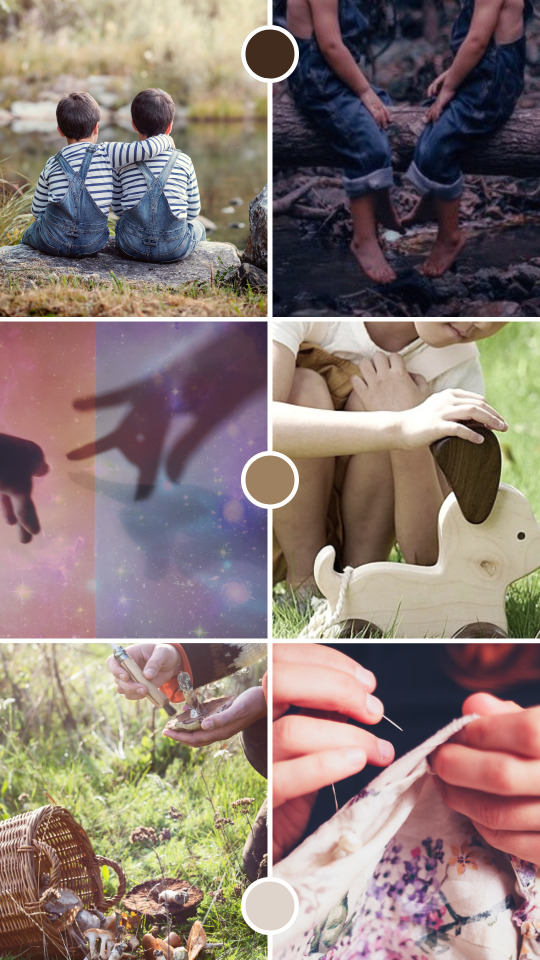
Maglor took pity upon Elros and Elrond, and he cherished them, and love grew after between them, as little might be thought.
@feanorianweek Day 2: Maglor->Elrond & Elros
#silmarillion#silmedit#feanorians#maglor#kidnap fam#kidnap dads#elrond and elros#found family#feanorianweek
64 notes
·
View notes
Note
since you already did Elrond, how about Maglor for the character asks? <3
1: sexuality headcanon
Aroace. Can't explain why I get this vibe, but that's the vibe I get!
2: otp
Maglor & his harp. See above.
3: brotp
I am constantly enamored with his (potential) relationship with Elrond. Especially during the early years, and then later upon (potential) rescue from his beach cryptid life. I go hard for forgiveness narratives -- and what I love so much about Kidnap Fam is that it is not a redemption narrative. At least not the way I write it. Maglor & Maedhros are not redeemed of their War Crimes because they decided to spare some kids. Or rather, they do not redeem themselves. Rather they are redeemed and they are sanctified by love, but also that doesn't happen when E&E are kids completely, because E&E are kids and they are bonding to their only caretakers, as kids to survive.
And yes love grew between them, but it isn't that love that I am fascinated by. It's the love that happened after. I am enamored with the idea that Elrond and Elros chose to love them once they were older and really understood things. And enamored with the idea that Elrond chose to forgive, because Someone Had To. Because the Oath will never be something that can be brought to Justice. There is no Justice for what was done in pursuit of the Silmarils. There is no Justice that would suffice for all the lives lost, for the lives that were destroyed, etc. etc. But I love the idea of Elrond going 'You know what, I'm Tired' and he chooses to be the one to bridge things and say: I forgive you. Because who is in a better position to forgive the Sons of Feanor than the grandson of Dior and great-grandson of Turgon, the son of Elwing and nephew of Elured and Elurin, who has some relation to pretty much everyone involved and who arguably has perhaps the best claim to Justice imaginable, because the man lost his parents, his Sindarin heritage (for a time), his entire goddamn childhood, and pretty much his entire early adulthood due to the Oath. He lost his birthright to two kingdoms.
He suffered so much and I am a slut for characters who suffer like that and choose forgiveness & peace. Not because it redeems the forgiven, but because there comes a point where justice alone will never be a satisfying end to the story, but forgiveness, to say enough is enough, to say let's end the cycle of violence, and no more -- because it brings peace to the person who forgives... yeah.... am I making any sense, here? I personally truly believe that the only satisfying end to the story of the Oath comes in grace. Justice can never be sufficient for all the evil that was done. And the point of forgiveness is that it is undeserved, and that it opens the door for healing.
4: notp
Maglor/any of the other Feanorians. I see this startling amount??? I also have this problem where I forget that White Fingon exists so every time I see White Fingon Russingon art my brain automatically assumes it's Maglor for a split second. Life is hard lmao.
5: first headcanon that pops into my head
His hair is black but it's like a raven's wing where it catches the light and turns all sorts of different colors. :)
6: favorite line from this character
Uh I'm gonna be very unoriginal:
"For Maglor took pity upon Elros and Elrond, and he cherished them, and love grew after between them, as little might be thought"
7: one way in which I relate to this character
Re my own interpretation I relate so hard to the tendency of being unable to let past mistakes go. It's one thing to have other people forgive you. It's quite another to learn to forgive yourself.
8: thing that gives me second hand embarrassment about this character
Any evil/abusive Maglor takes are just... yuck. I'll take "incredibly fucked up and in no way capable of raising children" but intentionally abusive is a take that I can't stand.
9: cinnamon roll or problematic fave?
Problematic fav, of course!
19 notes
·
View notes
Note
Would you mind explaining the post where you say it´s canon that Elrond doesn´t like Maglor and Maedhros?
Because if it is I missed a lot in the books, as I remember it Maglor found the twins and named them Elrond and Elros (star doom and star foam), they probably had other names before, and they kept them even after Maglor and Maedhros left, not to mention the famous quote "as little might be thought love grew between them"
(another version of this quote "For Maglor took pity upon Elros and Elrond, and he cherished them, and love grew after between them, as little might be thought-")
I do see that it could kinda work with Maedhros if you look away from other versions such as the one where Elros doesn't exist "But Maidros took pity upon her child Elrond, and took him with him, and harboured and nurtured him-" where it´s up for the reader if Maedhros really cared for Elrond and if it were returned.
I mean no insults as I´m just curious about your understanding of it and I´m deeply sorry if it comes off as rude that´s not the intention.
Nowhere in canon does it say that Elrond liked or disliked Maedhros and Maglor. I like the quote “love grew after between them, as little might be thought” because it leaves it up to the reader to decide whether that means a surprisingly huge amount, or the smallest amount.
Love does not always mean like, and doesn’t always mean healthy.
Anyway I said in my post that I would make Elrond my mouthpiece for my own dislike which I hope indicates that I’m aware it’s not exactly accurate.
I just have enormous problems with stans of “kidnap fam” stuff because it often lacks so much nuance. Like even the name!! As if Elrond and Elros saw M&M as fathers! Even the popularised name for the dynamic is so incredibly biased it’s so annoying. Yeah Maedhros harboured them yeah Maglor raised them but why is that? Because they are the reason the twins had no family left. The Havens were exterminated along with everything and everyone Elrond and Elros had ever known and loved.
Regarding their names, a few accounts say that Elrond and Elros were the names given by Maglor but as with many things within the legendarium it’s not a certainty, I do not believe that.
I’m acc sick of the dynamic being so undisputed so I’m balancing the scales by being a nasty hater 🫶
#anon#ask#I like Maedhros as a character!#am just sick of this dynamic ngl#like for me it just comes down to. yeah they took the kids in. why did they need takijg in in the first place#I wonder why they are children without kin or home :)#how did that happen :)
9 notes
·
View notes
Text

prideboards ♡ genderfluid maglor ♡ art from this picrew ♡ for @maglorslostsilmaril
For Maglor took pity upon Elros and Elrond, and he cherished them, and love grew after between them, as little might be thought; but Maglor's heart was sick and weary with the burden of the dreadful oath.
—The Silmarillion, “Of the Voyage of Eärendil and the War of Wrath”
#tolkienedit#oneringnet#silm#silmarillion#maglor#my edit#my moodboards#prideboards#tefain nin#trans tolkien#fun in picrew#maglorslostsilmaril#editreq#pride22#id in alt text
38 notes
·
View notes
Photo
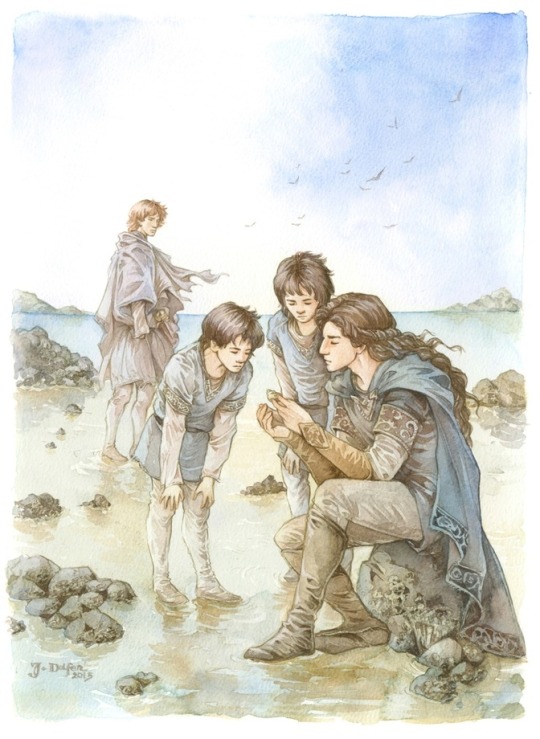
As little might be thought, by Jenny Dolfen.
“For Maglor took pity upon Elros and Elrond, and he cherished them, and love grew after between them, as little might be thought; but Maglor’s heart was sick and weary with the burden of the dreadful oath.”
—J.R.R. Tolkien, The Silmarillion, “Of Eärendil and the War of Wrath”elrond half-elven
19 notes
·
View notes
Text
The near fourth kinslaying
read it on the AO3 at https://ift.tt/SaH1yfK
by CorA2
Behind them, the camp was on fire. The Silmarils were burning their hands, proving that they truly were unworthy of holding them. Maedhros and Maglor knew they weren’t being pursued, but still ran quite the distance until they halted, panting. Maglor supported himself on his knees and Maedhros held his side as they were trying to catch their breath.
“We did it, brother. At last, we –“
Maedhros was knocked back by Maglor’s punch.
---
"For Maglor took pity upon Elros and Elrond, and he cherished them, and love grew after between them, as little might be thought; but Maglor's heart was sick and weary with the burden of the dreadful oath." - The Silmarillion, Of the voyage of Eärendil, pg. 297
What if the Thrid Kinslyaing was his breaking point?
What if he grew to hate Maedhros for convincing him to raise the sword one more time?
Words: 623, Chapters: 1/1, Language: English
Fandoms: The Silmarillion and other histories of Middle-Earth - J. R. R. Tolkien, TOLKIEN J. R. R. - Works & Related Fandoms
Rating: Mature
Warnings: Graphic Depictions Of Violence, Major Character Death
Categories: Other
Characters: Maglor | Makalaurë, Maedhros | Maitimo, Elrond Peredhel, mentioned - Character, Elros Tar-Minyatur, mentioned as well
Relationships: Maedhros | Maitimo & Maglor | Makalaurë
Additional Tags: Heavy Angst, Madness, Grief, Hatred, Third Kinslaying (Tolkien), Silmarils, Blood and Violence, Graphic Description, maglor goes mad, Drabble, Hurt No Comfort, No Happy Ending Fest, Mild Gore, Canonical Character Death, Suicide
read it on the AO3 at https://ift.tt/SaH1yfK
0 notes
Photo

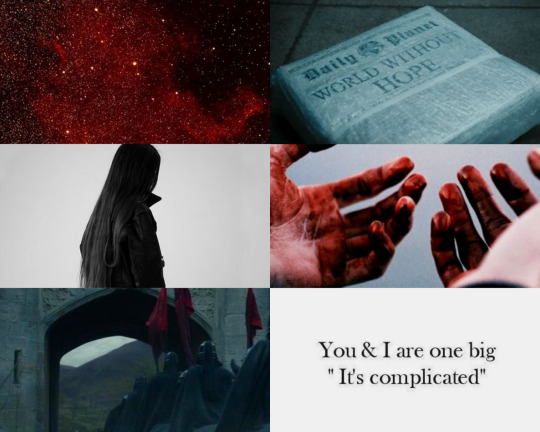
@tolkiengenweek Day 3: Gray Spaces
Great was the sorrow of Eärendil and Elwing for the ruin of the havens of Sirion, and the captivity of their sons, and they feared that they would be slain; but it was not so. For Maglor took pity upon Elros and Elrond, and he cherished them, and love grew after between them, as little might be thought; but Maglor's heart was sick and weary with the burden of the dreadful oath.
#tolkiengenweek#oneringnet#tolkien#tolkienedit#sourcetolkien#silm#silmedit#kidnap fam#as kind as summer#elros#maglor#maedhros#tgw21#i'm really happy with this idea#tho idk what vibes i was going for with this edit?#it certainly is something#elrond#🌟 edits
119 notes
·
View notes
Text
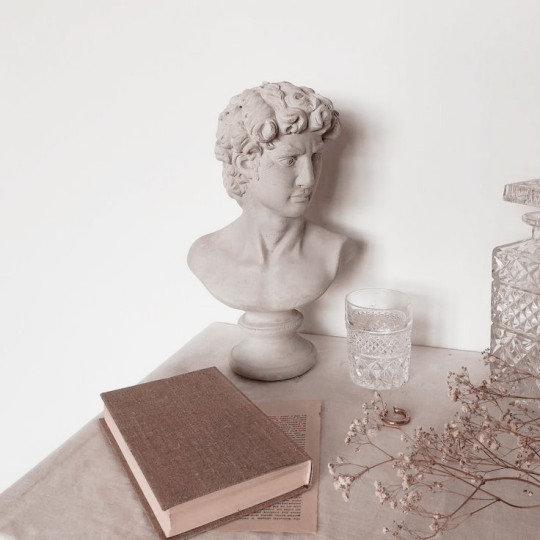




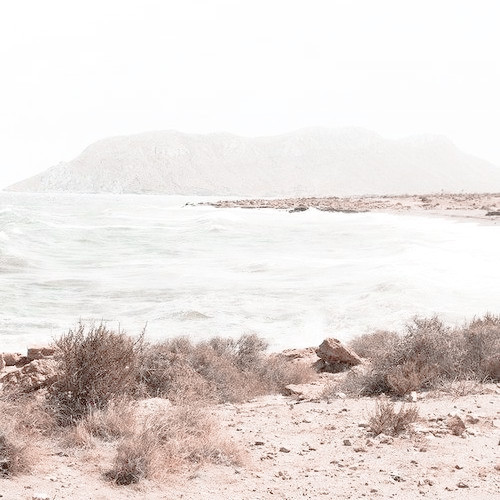



character aesthetic: maglor, the musician
For Maglor took pity upon Elros and Elrond, and he cherished them, and love grew after between them, as little might be thought; but Maglor's heart was sick and weary with the burden of the dreadful oath.
106 notes
·
View notes
Photo



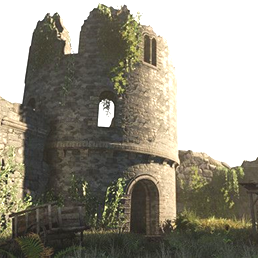


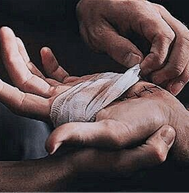


“For Maglor took pity upon Elros and Elrond, and he cherished them, and love grew after between them, as little may be thought.”
#elrond#elros#tolkien legendarium#pontifications and creations#silmarillion#aurë entuluva!#Leah edits
47 notes
·
View notes
Note
ahhh happy birthday aamna!! 🥺🥺 i hope you're having a great time because you honestly deserve it! i was actually just looking through some tolkien things to find something i could send you but i've honestly run out of ideas so i'm just gonna leave you some of my favorite tolkien quotes here 🥺👉👈:
Fingon had been close in friendship with Maedhros; and though he knew not yet that Maedhros had not forgotten him at the burning of the ships, the thought of their ancient friendship stung his heart. Therefore he dared a deed which is Justly renowned among the feats of the princes of the Noldor: alone, and without the counsel of any, he set forth in search of Maedhros;
from the silmarillion
‘A gift I will give you. For I am the daughter of Elrond. I shall not go with him now when he departs to the Havens; for mine is the choice of Lúthien, and as she so have I chosen, both the sweet and the bitter. (...)'
from the return of the king
Maedhros did deeds of surpassing valour, and the Orcs fled before his face; for since his torment upon Thangorodrim his spirit burned like a white fire within, and he was as one that returns from the dead.
from the silmarillion
For Maglor took pity upon Elros and Elrond, and he cherished them, and love grew after between them, as little might be thought; but Maglor's heart was sick and weary with the burden of the dreadful oath.
from the silmarillion
Amroth beheld the fading shore
Now low beyond the swell,
And cursed the faithless ship that bore
Him far from Nimrodel.
(....)
The foam about him shone;
Afar they saw him strong and fair
Go riding like a swan.
But from the West has come no word,
And on the Hither Shore
No tidings Elven-folk have heard
Of Amroth evermore.
from the song of nimrodel
anyways, i hope you're having a great time and receive all the love that you deserve 🥺❤💞❤❤💞🤧❤💖❤💗💖💞❤🤧💞❤💖💞❤💖💞💗❤🤧💞❤🥺❤🤧💞❤💗💞💖❤🤧😫💞💖💞🤧🥺
Laura fjfjfk omg I love these 🥺💖💖 I dont know much about the context but reading the first one gave me twin prides of yunmeng vibes and the fourth one just screams wangxian to me.
Thank you!! 🥰💖💖 I hope you have a wonderful day!
4 notes
·
View notes
Text
do you ever think about how weird it must have been when Elrond was having the song about his father sung to him? like. I try really hard not to consider Eärendil as one of the most selfish father figures since the sea-longing is a thing and it’s very significant to me and I don’t want to downplay it, because I too have the sea-longing and I know the struggle. but at the same time, lets be real. Eärendil abandoned his wife and twin sons, who were so young that Elrond and Elros probably have very little actual memory of their father. they might know his face, they may recall his voice, recall his temperament, but ultimately they were very young, younger than six years old, when their father left them. and in fact, even their mother eventually abandons them in a way, leaving the boys ultimately to be raised almost entirely by the Sons of Feanor.
I 100% view Elrond as a symbolic grandson of Fëanor, because Elrond and Elros really, truly had very little time to get influenced by their biological parents. of course, I do believe that they did, the growth rate of elves mentally indicates that they’d have a little more familiarity with their parents than a human child of under six years of age, because elven children can already dance and sing by the time they’re a year old if I recall correctly, but that’s still quite young even for an elf when you consider the fact that Elrond grew up as a prisoner of war. like, I don’t think a lot of people actively think about that. he was technically a prisoner-of-war for most all of his youth.
but he was one that came to love his captors. and it’s interesting to me how Tolkien phrases it. he writes, “for Maglor took pity upon Elros and Elrond, and he cherished them, and love grew after between them, as little might be thought; but Maglor's heart was sick and weary with the burden of the dreadful oath.” now lets break this down a little. first for Maglor took pity upon Elros and Elrond, and this of course can mean any number of things. it could means he chose not to kill the children, or it could simply mean that he chose not to abandon them where he found them (on the matter of being found, see here). you have to remember that at this point, Maglor is likely still affected by the loss of these very childrens’ uncles. in the story about Eluréd and Elurín, who were the brothers of Elrond and Elros’ mother, they were captured and then left in the woods to starve by the servants of Celegorm. but Maedhros repented of this act and went to look for them, but couldn’t find them. so Maedhros and Maglor are probably very aware that these boys are the nephews of the those twins, and I feel like that factors in to their decision to keep them. I truly feel like keeping them and raising them may have been some small attempt to make up for the loss of their uncles. so then going on with the line, and he cherished them, and love grew after between them, as little might be thought. that line there gets me, ‘as little might be thought’, because it indicates that no one really thinks that there would be any reason for the boys to have any affection for their captors. by all rights, Elrond and Elros would be completely justified in hating Maglor and Maedhros, and yet ‘love grew after between them’. this indicates that the affection from the boys’ end was not there at first, and it may even have been a rough adjustment for Maglor and Maedhros as well, but that with patience and care, the boys and (at the very least Maglor) came to love one another. Maglor filled in the place of a father. there is so much to admire in the strength of a step-father.
because think of who Elrond becomes, and then think of who raised him, and how much Elrond went through. you thought I was going to ignore that last line, but no, it’s the most important of them all. when Tolkien writes, ‘but Maglor's heart was sick and weary with the burden of the dreadful oath’, and then you couple that with the kind of person that Elrond is. it’s obvious to me that Elrond could see the affect that this oath had on the brothers. but especially Maglor, who I believe regretted the oath more than any of his brothers. this oath weighed on him so much, he is filled with so much regret, and Elrond could surely see this, and I think it’s what inspired him to become a healer. seeing the pain and grief that both Maglor and Maedhros went through, I feel like Elrond wanted to help others, heal them and bring them out of their despair if possible.
and so trying to return to how this whole headcanon started, I really wonder what goes through Elrond’s mind if he hears praise for Eärendil and scorn of Maglor and Maedhros, because if we are being completely honest here, Maglor is Elrond’s father in every way that matters. I believe it was Maglor’s influence, Maglor’s teachings, that turned Elrond into the individual he is, but that he still love his biological father. in all of this, while I do absolutely feel that Maglor is the significant father figure, I do also believe that after the great war, when Elrond and Elros made their choices, that the boys had an opportunity to meet their father as adults and speak. so he isn’t entirely knowledgeable about his own father, but he had very few chances to know him. it’s more of a professional respect for him at this point.
7 notes
·
View notes
Photo
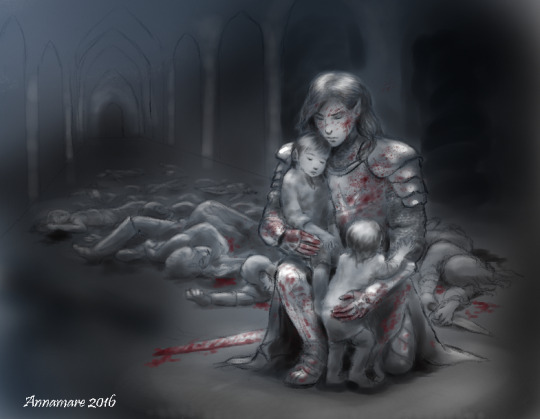
For Maglor took pity upon Elros and Elrond, and he cherished them, and love grew after between them, as little might be thought... ~ The Silmarillion, Chapter 24 (For Maglor Took Pity On Them by annamare by deviantART)
14 notes
·
View notes